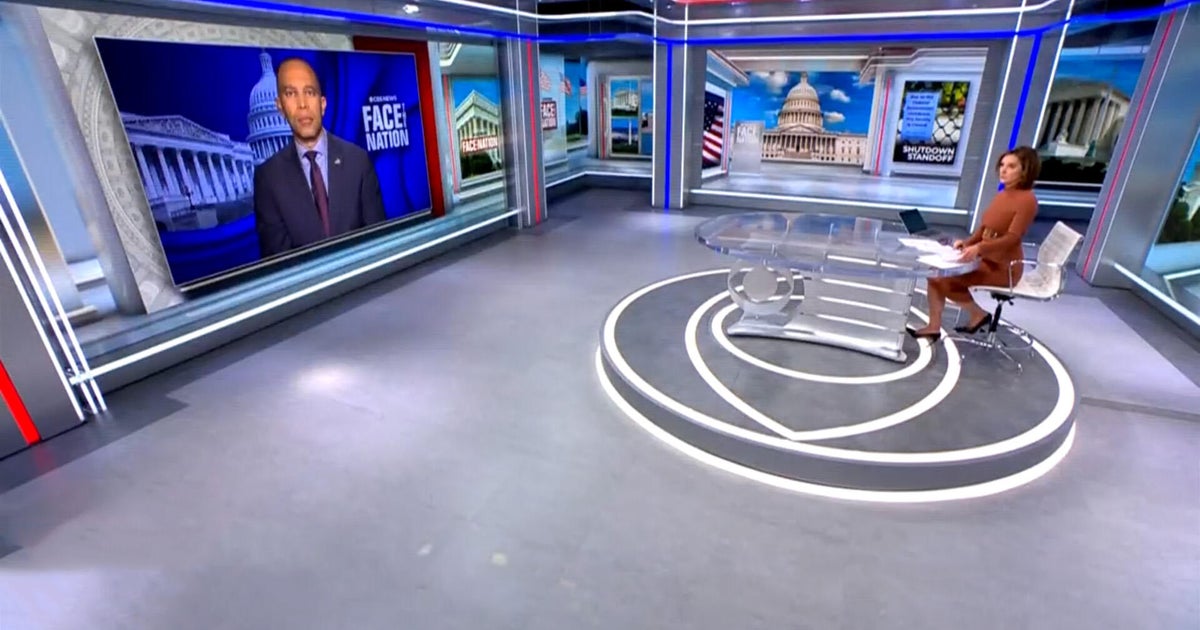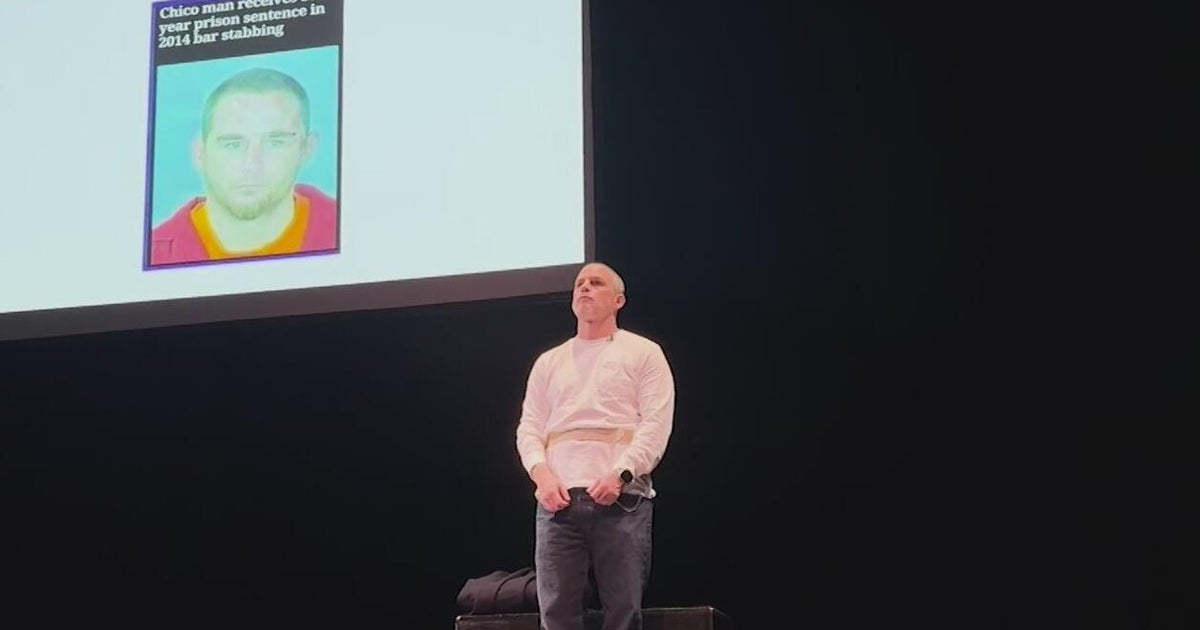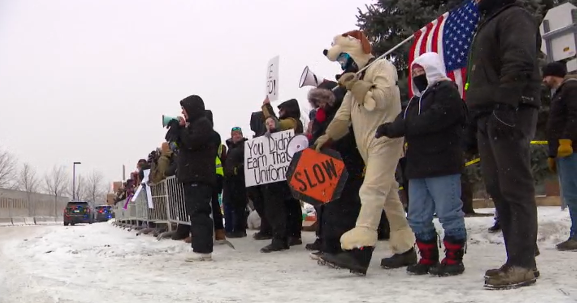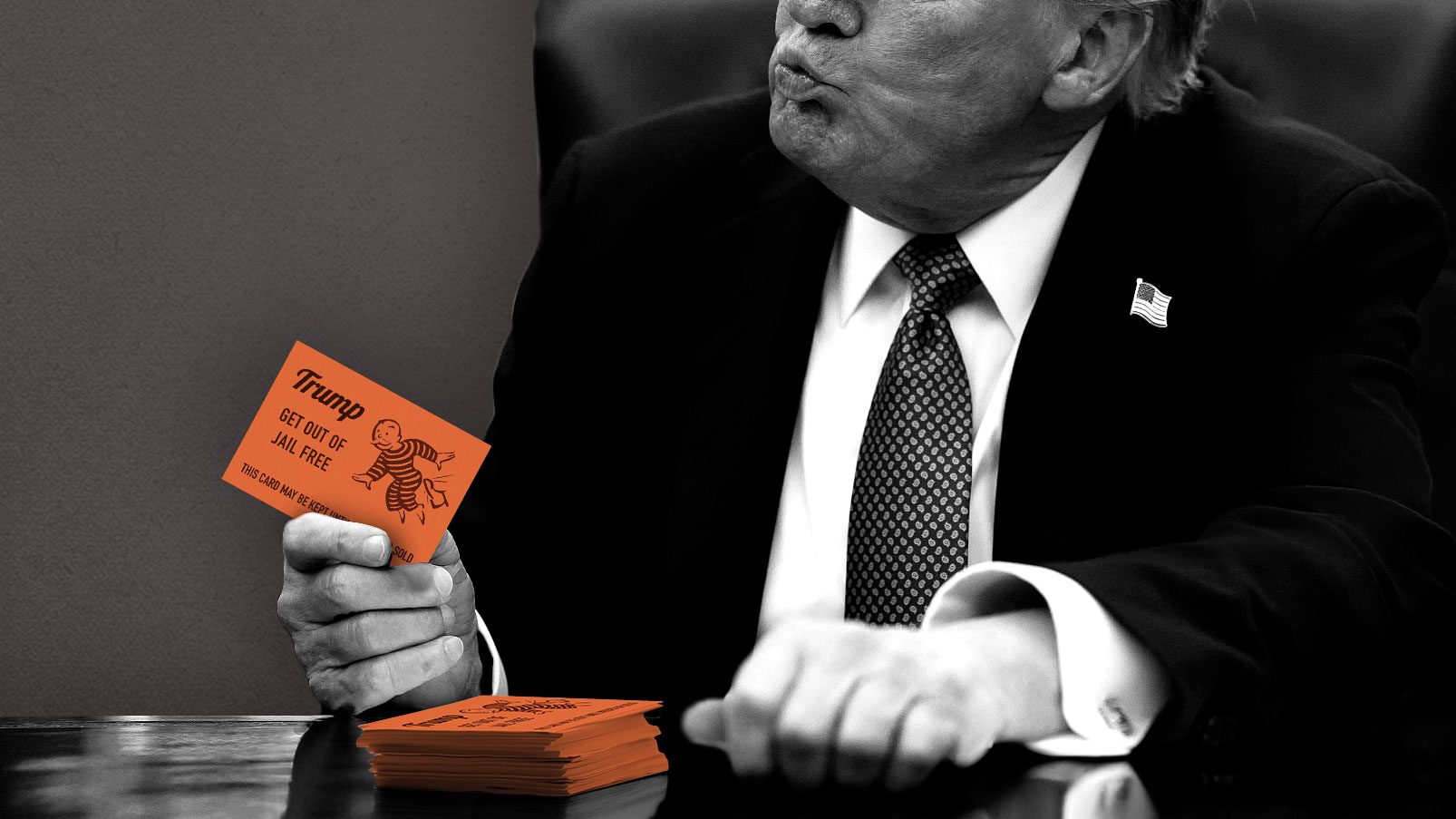Transcript: Rep. Trey Gowdy on "Face the Nation," Feb. 4, 2018
Rep. Trey Gowdy, R-South Carolina, was one of the key authors of the House Intelligence Committee's now-declassified memo about the application under the Foreign Intelligence Surveillance Act (FISA) to surveil former Trump official Carter Page.
Gowdy was tasked by committee chairman Rep. Devin Nunes to assess the intelligence that underlies the memo's claims, specifically that federal investigators failed to disclose the origin of information compiled in the so-called "Steele dossier" that formed part of the justification for the surveillance order. Gowdy joined us to discuss what the memo does and doesn't say, and what its impact on the broader Russia probe could be going forward.
The following is a transcript of the interview with Gowdy airing Sunday, Feb. 4, 2018, on "Face the Nation."
MARGARET BRENNAN: Saturday, President Trump tweeted that the memo "totally vindicated Trump" in the Russia probe. We sat down earlier with South Carolina Congressman Trey Gowdy, a key House Intelligence investigator and asked him if he thought the president had been vindicated.
REP. GOWDY: I actually don't think it has any impact on the Russia probe for this reason --
MARGARET BRENNAN: The memo has no impact on the Russia probe?
REP. GOWDY: No-- not to me, it doesn't -- and I was pretty integrally involved in the drafting of it. There is a Russia investigation without a dossier. So to the extent the memo deals with the dossier and the FISA process, the dossier has nothing to do with the meeting at Trump Tower. The dossier has nothing to do with an email sent by Cambridge Analytica. The dossier really has nothing to do with George Papadopoulos' meeting in Great Britain. It also doesn't have anything to do with obstruction of justice. So there's going to be a Russia probe, even without a dossier.
MARGARET BRENNAN: Speaker Ryan says that the memo that you helped put together here does not threaten the credibility of the FBI. The president has very different views -- says it does. Where do you stand?
REP. GOWDY: I don't think there's a bigger supporter of the FBI in Congress than me and those of us who work with them in a previous life. I have tremendous respect for the bureau. There are 30,000 employees. Let's assume that there are five that engaged in conduct that we have questions about --
MARGARET BRENNAN: Five? Individuals?
REP. GOWDY: -- that leaves a lot. That leaves a lot that are doing exactly what we want them to do.
MARGARET BRENNAN: Are these five individuals named in the memo that you helped publish?
REP. GOWDY: I think two of them would be. People can quibble about Andy McCabe. I spent, I guess, close to 15 hours with Andy McCabe in two different interview sections. I found him to be a professional witness even though I disagree with some of the decisions he made. And I think we've got to get to some point in life where you can disagree with the decision-making process that someone engaged in, without believing that they are corrupt or somehow part of the "deep state," whatever that means.
MARGARET BRENNAN: This is the deputy director of the FBI who now is --
REP. GOWDY: Former.
MARGARET BRENNAN: -- retiring.
REP. GOWDY: Yes, ma'am.
MARGARET BRENNAN: Yes, or being asked to leave perhaps earlier than he had planned. But when it comes to the-- the Department of Justice and the FBI now that the president is raising questions about these individuals were hand-picked by-- by him, and he's critical of them. Do you think that there need to be changes there?
REP. GOWDY: -- I think the folks that he picked, Chris Wray and Rod Rosenstein can effectuate those changes. Rod Rosenstein is a former United States Attorney, and again, I-- I have differences with the way that they discharge their responsibilities. But there's-- there's a-- there's a wide gulf between me having differences from somebody and think that they should lose their job. (sic) I-- I'm really impressed with Chris Wray. To Chris's defense, he didn't want the memo to come out. He's speaking up for his agency, but Congress is the one who created FISA. In fact, Congress created the FBI. So there's going to be good-- good branch tension. It doesn't mean someone should lose their job, it doesn't mean they're corrupt. But it also doesn't mean Congress is not legitimate in asking these questions, because I think we are.
MARGARET BRENNAN: Rod Rosenstein, the-- the deputy attorney general that you reference there, is also publicly disclosed in this memo as someone who helped sign off on this surveillance warrant. Do you have confidence in him? Should he keep his job?
REP. GOWDY: I have confidence in him --
MARGARET BRENNAN: The president wavered on that, when he was --
REP. GOWDY: I didn't --
MARGARET BRENNAN: -- asked this week.
REP. GOWDY: -- get to pick him. And the president-- I've actually never met President Trump. Never had a conversation with him, and he certainly should not ask my hiring advice. I've had my differences with Rod Rosenstein and I still think that he is fully capable of-- of helping run a Justice Department that we can all have confidence in. I'm actually really impressed with Chris Wray and I say that, even though we are on totally opposite sides of this issue and probably will always be. He doesn't think the memo should have-- should have been publicly disseminated. I have real questions about the process that the bureau went through in 2016, but I also think he's the person to-- to lead the bureau. I think he's doing a good job.
MARGARET BRENNAN: Well, the FBI was gravely concerned that there was information missing from this memo that it actually was dangerous in setting a precedent in terms of disclosing classified information, and it could actually hurt future intelligence efforts. How do you respond to that, and to Chris Wray?
REP. GOWDY: Difficult facts make for really bad precedent. I hope this is a one-off. I hope it is a one-off that Congress takes this position, but I also hope it's a one-off that a FISA application contains errors and-- and-- and product that is funded by a political opponent. I hope that that's a one-off. So--
MARGARET BRENNAN: That's the Steele dossier that you are pointing to there.
REP. GOWDY: But-- but it's--it's both the Steele dossier, and who paid for it, and whether or not it was vetted, but it's also what was not in it. This is an application to a court. So, I get that Adam Schiff and others are worried about what's not in my memo. I wish that they were equally concerned about what's not in the FISA application, which is a lot of really important information about the source, and its sub-sources, and the fact that he was hired by the DNC and the Clinton campaign, and the fact that he was biased against President Trump. That is all information that the-- that the finder of fact is entitled to.
MARGARET BRENNAN: Now, we should dig into this. Because you are, from my understanding, the only Republican investigator on the House Intelligence Committee who actually viewed the FISA applications. Everything that went into essentially putting together this memo. So, when you're talking about this Steele memo, you are not saying that it was the sole piece of evidence used to justify these four authorizations of the surveillance warrant. Are you?
REP. GOWDY: No. It was not the exclusive information relied upon by-- by the FISA court.
MARGARET BRENNAN: Would it have been authorized were it not for that dossier?
REP. GOWDY: No. It would not have been.
MARGARET BRENNAN: How can you say that? Because it was authorized four times by separate judges.
REP. GOWDY: Right. And the information was in there all four times.
MARGARET BRENNAN: Mm-hm.
REP. GOWDY: And the judge doesn't do independent research. There are three Republicans that have seen every bit of information. Three of us: Bob Goodlatte, the chairman of the Judiciary; Johnny Ratcliffe, who's a former terrorism prosecutor and U.S. attorney in Texas, and me. All three of us have total confidence in the FBI and DOJ to be able to do the jobs that they have been assigned. We have confidence in Bob Mueller, and we have serious consideration-- serious concerns about this process. So, we have all three of those things in common, including being concerned about what--what happened in 2016.
MARGARET BRENNAN: Should all the information in the FISA applications be publicly disclosed, declassified so that people can make their own judgment and see what you've seen?
REP. GOWDY: -- I think I'm going to defer a little bit to the bureau and DOJ on-- it's a long application. If there are sources and methods that are-- are not already known, that they think would jeopardize national security, I would-- I would defer to their judgment. The source that we revealed, Chris Steele, was about the least well-kept secret in America.
MARGARET BRENNAN: Mm-hm.
REP. GOWDY: So, generally I-- I err on the side of transparency and disclosure.
MARGARET BRENNAN: Mm-hm.
REP. GOWDY: On the other hand, there's a reason that this process is usually confidential, and-- and I don't want to set the precedent of all FISA applications being publicly seen.
MARGARET BRENNAN: Well, that's the concern in doing this memo, that you have set a new precedent.
REP. GOWDY: -- I-- I would argue it's also somewhat unprecedented to rely on political opposition research to instruct and inform an application, and it's really bad precedent and unprecedented to not tell a court that a source has this level of bias.
I mean, look at just the disclosure of who paid for it. They could have easily said it was the DNC and--and Hillary Clinton. That would have been really easy. I read the footnote. I-- I know exactly what the footnote says. It took longer to explain it the way they did, than if they just come right out and said, "Hillary Clinton for America and DNC paid for it." But they didn't do that.
MARGARET BRENNAN: But short of that disclosure, you still would have believed this FISA surveillance warrant was justified? I mean, it-- your-- your problem is in the disclosure within the application, but the surveillance itself of this American, Carter Page -- was named in your memo, who was at one point a Trump campaign associate -- was that justified, that surveillance?
REP. GOWDY: Um, we'll never know, because the application contained three parts: it -- it included the dossier, it included reference to a newspaper article which by the way no court in America considers a newspaper article to be evidence, and it included other information they had on Carter Page. So what I would say to the FBI and DOJ is if you had enough on Carter Page with just him, why did you include something that the National Enquirer might not run? And why did you cite a newspaper article when there's no court in America that allows a newspaper article to be considered as evidence? If you had enough without it, why did you use it? That would be my question to them.
MARGARET BRENNAN: Were the judges political? Four times, this was approved.
REP. GOWDY: No. I-- I-- the judges are only as good as what's put in front of them. Judges don't do independent research. So, you're looking at--
MARGARET BRENNAN: Well, this is an --
REP. GOWDY: -- this stack of paper.
MARGARET BRENNAN: -- an extensive process from-- from what I'm told. I mean, this isn't just something people sign off on quickly. It's, you know, a sizable application with, as you said, multi-part information that's submitted.
REP. GOWDY: But that's true for --
MARGARET BRENNAN: Were the judges not doing their jobs?
REP. GOWDY: No, I think they were. I mean, judges signed Title 3 applications all the time. They sign search warrants. They sign arrest warrants. There's a reason the affiant swears to the truthfulness of the underlying information.
Judges can't then go research and say, "Well, gosh I wonder if Chris Steele knew this all himself or -- wonder if he was relying on hearsay from sub-sources in Russia?" That's not the judge's job. It is the FBI and DOJ's job to present full, credible information to the court. So, I don't-- look, I'll never miss a chance to blame judges if I can, because I was a former litigator. There's nothing judges can do about information that is not presented to them.
MARGARET BRENNAN: And the Deputy Attorney General, Rod Rosenstein, if the president makes any move to dismiss him -- he failed to express confidence in him the other day -- would that concern you?
REP. GOWDY: It would. Again, I'm not in the Senate. I don't have advice and consent. And the president has not sought my-- counsel on this.
MARGARET BRENNAN: But you don't think he should be fired based on what you've seen.
REP. GOWDY: I-- I-- I don't. I-- I think it is fair to ask the deputy attorney general what did you know at the time you signed one of the applications. I think it is fair to ask what FISA reforms are you going to implement to make sure we don't have this fact pattern come up again. I don't judge people based on a single decision that they make throughout the course of an otherwise really stellar career.*
MARGARET BRENNAN: I want to ask you about one of the criticisms that's coming from Democrats here because there was a lot of hubbub -- should the memo come out, should it not. When it did, in reading it, Democrats said that the content actually undercuts some of the argument that you're making here, because it confirms that the Russia probe was already underway in advance of these FISA warrant applications and that it pointed all the way back to July 2016 when George Papadopoulos was named there -- a former Trump foreign policy aide who has since pled guilty and is now a cooperating witness in the special counsel's probe. So how do you respond to that? That you've actually hurt your own argument.
REP. GOWDY: Well I'm actually in a really small group, I think, of Republicans that think that this FISA process is suspect and wrong and should not have taken place. But you still have a Russia investigation even without it.
So, I don't know how many other Republicans feel that way. I-- I am on record as saying I support Bob Mueller 100 percent. I think you would have a Russia -- look Russia tried to interfere with our election in 2016 with or without a dossier. So you need an investigation into Russia. You need an investigation into Trump Tower and the Cambridge Analytica email, separate and apart from the dossier. So those are not connected issues to me. They may be for other Republicans, but they're not for me. I say investigate everything Russia did, but admit that this was a really sloppy process that you engaged in to surveil a U.S. citizen.
MARGARET BRENNAN: So your concern is a process-driven one -- not questioning the probe that the president continues to call a "witch hunt". Because he is taking this evidence as he's saying you know "clearing the decks" and-- and saying that, you know, in the court of public opinion, he should already be decided as not guilty of collusion.
REP. GOWDY: Well, that-- that's a little bit separate issue. (sic) I -- you know, we're not through with the investigation. So I'm not going to prejudge the outcome of it. I have seen no evidence of collusion between President Trump and the Russians or his campaign and the Russians.
MARGARET BRENNAN: Mm-hm.
REP. GOWDY: We're not through investigating. But I would ask my fellow citizens keep these three things disconnected. Bob Mueller is looking into what Russia did in 2016 and potential criminality as evidenced by the Papadopoulos plea and the Flynn plea. Congress is looking into what Russia did in 2016. But oh by the way, it's also -- you can do that and also be critical --
MARGARET BRENNAN: Mm-hm.
REP. GOWDY: -- of the use of the dossier and-- and the failure to tell the--the FISA court all relevant material facts. You can do all three, and--and that's where I am.
MARGARET BRENNAN: Now, your committee, the House Intelligence Committee, has said they have a second memo planned for release -- this time about the State Department. What can you tell us about that?
REP. GOWDY: That that's news to me.
MARGARET BRENNAN: You didn't have a role in creating this memo?
REP. GOWDY: I don't think there is a memo about the State Department. The way I --
MARGARET BRENNAN: But Chairman Nunes has said that publicly.
REP. GOWDY: I think what-- I think what Devin said is there's a phase two of the investigation. And there is-- we do have concerns with a certain aspect of State Department involvement and have serious concerns about it. It's not been public yet. So I-- I-- I think what Chairman Nunes meant is there's--there's another aspect to the investigation. But if there's a second memo, I don't know about it.
MARGARET BRENNAN: I want to ask you about the other big news of the week that-- that you made.
REP. GOWDY: (LAUGHS)
MARGARET BRENNAN: You surprised Washington with announcing your retirement -- that you're not going to run for Congress. Why did you decide to leave?
REP. GOWDY: You know, I'm just-- I-- I enjoy the justice system more. I enjoy being fair. I enjoy the pursuit of fairness as a virtue and I'm just more comfortable in that system. My wife hates it when I say this, but I-- I was a pretty good prosecutor, I think. But I've been a pretty lousy politician. So I've done it for seven years. I'm really grateful for the opportunity to do it, but it's time for me to -- whatever time I've got left -- I want to spend it in the justice system because that's where my heart is, and that's where my interests--
MARGARET BRENNAN: Why do you say you are a lousy politician?
REP. GOWDY: I just-- I-- I see multiple sides of a single issue. And the fact that someone disagrees with me, does not make me challenge their love of the country. It doesn't make me believe that they're corrupt. I've got a lot of friends on the other side of the aisle. We disagree on this issue, but-- but I don't question their love for the country and I don't-- I-- I just-- I don't think the end justifies the means. I think the manner in which we get places matters, and in politics too often winning is the only thing that matters. And look, every hero I have has lost. Every one of them. So losing is not the worst thing in the world. Not knowing what you believe and not caring enough about it to fight for it? That's the worst thing in the world.
MARGARET BRENNAN: Do you think you've served justice in your time in Congress?
REP. GOWDY: Not like I did in my previous job. I tried. It's about winning in politics, and that is not what-- the courtroom-- there's a reason we throw out search warrants even though we find the murder weapon. There's a reason we throw out confessions even though we think the person did it. The process matters. The end does not justify the means. And in politics, it's just about winning. And-- and I-- I can't-- I don't want to live like that.
MARGARET BRENNAN: Congressman, thank you for coming on --
REP. GOWDY: Yes, ma'am.
MARGARET BRENNAN: -- and telling your story.
REP. GOWDY: Thank you. Yes, ma'am.
MARGARET BRENNAN: We'll be back in one minute.





